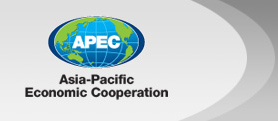APEC economy: Philippines; Jurisdiction: Philippines
Temporary practice ('fly-in, fly-out' practice)
There is no express rule allowing temporary practice by foreign lawyers.
The general rule is that the practice of law is limited to the citizens of the Philippines.
Filipino citizenship is a requirement to engage in the practice of law. The only exception at present is re-acquisition by a foreigner with Filipino citizenship in accordance with RA 9225 [In re Benjamin Dacanay, 540 SCRA 424 (2007)]. Advising on international law would be considered 'practice of law' [Cayetano v Monsod, 201 SCRA 210 (1991)].
Limited licensing of foreign lawyers (foreign legal consultant rules)
A foreign lawyer cannot obtain a limited licence entitling them to offer advisory services in foreign and international law (ie become a foreign legal consultant).
Full licensing
A foreign lawyer cannot obtain a full licence to practise law in this jurisdiction (but see note above in relation to re-acquisition of citizenship).
Commercial association between lawyers and law firms
In this jurisdiction:
- local lawyers may be employed by another local lawyer of a local firm;
- local lawyers may not be employed by a foreign lawyer or foreign firm;
- foreign lawyers may not provide services in some other form of commercial association with local lawyers;
- foreign firms are not permitted to establish a commercial presence (a permanent office) to offer advisory services in foreign and international law. A permanent office to offer advisory services shall squarely fall within the definition of 'practice of law' in its quality of being continuous and habitual. Therefore, it cannot be lawfully undertaken by foreign lawyers.
Practice of law means any activity in or out of court which requires the application of law, legal procedure, knowledge, training and experience. To engage in the practice of law is to perform those acts which are characteristics of the profession. Generally, to practise law is to give notice or render any kind of service, which device or service requires the use in any degree of legal knowledge or skill [Cayetano v Monsod, 201SCRA 210 (1991)].
Other regulatory issues
In this jurisdiction:
- foreign lawyers cannot establish an office in the absence of enabling legislation;
- there are specific rules in relation to advertising. These rules are Canon 3 of the Code of Professional Responsibility, which lays down the guidelines governing advertising by lawyers and law firms, to wit:
- Canon 3 – A lawyer in the making known his legal services shall use only true, honest, fair, dignified and objective information or statements of fact.
- Rule 3.01 – A lawyer shall not use or permit the use of any false, fraudulent, misleading, deceptive, undignified, self-laudatory or unfair statement or claim regarding his qualifications or legal services.
- Rule 3.04 – A lawyer shall not pay or give anything of value to representatives of the mass media in anticipation of or in return for publicity to attract business.
- there are specific rules in relation to use of names by lawyers or law firms. These rules are Rules 3.02 and 3.03 of the Code of Professional Responsibility (see database for details).
Contacts
| Category | Name | Website or other contact details |
|---|---|---|
| Organisation(s) that controls licensing of lawyers | Supreme Court of the Philippines | www.sc.judiciary.gov.ph |
| Peak professional association representing the legal profession | Integrated Bar of the Philippines | www.ibp.org.ph |
| Other associations playing a significant role in developing policy for the legal profession | Philippine Bar Association | www.Philippinebar.org |
